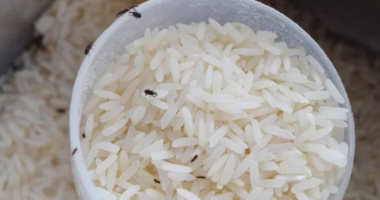A plant-based diet rich in whole foods may help lower the risk of developing cancer. No single food can prevent, cure, or treat cancer, but consuming certain foods can provide the body with the nutrients it needs to help reduce the risk of cancer. The top 12 cancer-fighting foods to include in a plant-based diet are;
1. Berries
Berries are considered cancer-fighting foods due to their high content of antioxidants and other beneficial compounds. They are a rich source of vitamin C and contain phytochemicals such as anthocyanins, ellagic acid, and flavonoids, which have been shown to protect cells from damage caused by free radicals and may help slow or prevent the development of cancer. Studies have demonstrated that berries, including strawberries, black raspberries, and blackberries, may inhibit tumor formation and cancer growth. The polyphenol antioxidants found in most berries, such as ellagic acid, have been shown to inhibit tumor growth[1].
2. Cruciferous vegetables
Cruciferous vegetables, such as broccoli, cauliflower, and Brussels sprouts, are considered cancer-fighting foods due to their high content of compounds called glucosinolates. These compounds have been shown to have various cancer-fighting properties, including protecting cells from DNA damage, inactivating carcinogens, and slowing tumor growth. Additionally, the bioactive components of cruciferous vegetables, such as sulforaphane, have been linked to reducing the risks of prostate, breast, colon, and oral cancers. While some human studies [2, 3] have shown inconsistent results regarding the association between cruciferous vegetable intake and cancer risk, the overall evidence from lab studies and population research suggests that including a variety of cruciferous vegetables in the diet may help reduce the risk of certain cancers. Don’t miss to know Who should avoid eating cruciferous vegetables? These group of people
3. Green tea
Green tea, especially green tea, is considered a potential cancer-fighting food. It contains polyphenols, particularly epigallocatechin-3-gallate (EGCG), which have been shown to have various protective effects against cancer. Laboratory studies have demonstrated that green tea can slow or prevent the development of cancer in colon, liver, breast, prostate, lung, and skin cells. Some longer-term studies have also associated green tea with lower risks for bladder, stomach, and pancreatic cancers. However, more research in humans is needed before green tea can be recommended as a definitive cancer fighter.
4. Vitamin D rich food
Vitamin D is considered a potential element in a cancer-fighting diet. Research has suggested that vitamin D may influence cancer risk and development. Some studies have shown a protective effect of vitamin D against various cancers, including breast and colon cancer[4].
5. Whole grains
Whole grains are considered a cancer-fighting food due to their high content of fiber, phytochemicals, B vitamins, and protein. Research shows that fiber can reduce the risk of colorectal cancer, and this may be because undigested carbohydrates in grains help move food through the body, reducing the transit time. Studies also indicate that eating a daily dose of whole grains could reduce other types of cancer, including breast and liver types. Whole grains are often inexpensive and can reduce the reliance many people have on animal-based foods. Emerging research is exploring whether intact whole grains, such as brown rice, farro, bulgur, sorghum, and quinoa, offer additional benefits beyond bread, cereals, and pasta made from milled, minimally processed whole grain flour. Therefore, incorporating whole grains into a balanced diet can be a valuable strategy for cancer prevention[5].
6. Soy foods
Soy foods, such as tofu, tempeh, edamame, miso, and soymilk, have been the subject of extensive research regarding their potential role in reducing the risk of cancer. Several studies have suggested that soy and its components, particularly isoflavones, may be associated with a decreased risk of overall cancer, including breast cancer. For instance, observational studies have shown that among Asian women, higher soy consumption is associated with an approximate 30% reduction in the risk of developing breast cancer.
Additionally, research has indicated that soy foods may reduce the risk of cancer recurrence, even in patients with estrogen receptor-positive cancer. The protective effects of soy on cancer may be primarily attributed to its isoflavone content [6, 7].
ALSO READ: 10 Reasons to Forget Animal-Based and Go Plant-Based for Low-Carb Weight Management
7. Folate rich foods
Folate, an essential B vitamin found in fruits, vegetables (especially dark green leafy vegetables), and legumes, has been associated with a potential role in preventing certain types of cancer. Research has suggested that folate may protect against cancers of the rectum, pancreas, esophagus, and colorectal cancer. However, the role of folate as a chemopreventive agent has been the subject of conflicting findings. While some studies have demonstrated a decreased risk associated with higher folate intake, others have shown no effect or even increased risk with higher intake. Folate is an essential micronutrient for DNA synthesis, repair, and methylation, and it has been promoted as a leading phytochemical candidate responsible for the anti-cancer benefit of fruits and vegetables. Therefore, while folate is an important part of a healthy diet and may play a role in cancer prevention, the evidence regarding its impact on cancer risk is not conclusive, and more research is needed to fully understand its effect[8, 9].
8. Beans and legumes
Beans and legumes are considered cancer-fighting foods due to their high content of fiber, antioxidants, and phytochemicals. Research shows that regular consumption of beans and legumes may reduce the risk of certain types of cancer, including colorectal, breast, and prostate cancer. For instance, a prospective study examining dietary patterns and disease risk found significant inverse associations between legume consumption, including beans, peas, and lentils, and colon cancer. Additionally, studies have reported a protective effect of legumes against adenoma recurrence and prostate cancer risk. The unique composition of fiber, as well as important micronutrients and antioxidants, makes beans and legumes an important food choice for many reasons, including their possible anti-cancer properties for certain types of cancer.
9. Nuts and seeds
Nuts and seeds are considered cancer-fighting foods due to their high content of heart-healthy components, such as protein, dietary fiber, monounsaturated fats, and polyunsaturated fats like alpha-linolenic acid. They also contain vitamins and minerals, such as vitamin E and magnesium, as well as antioxidants and anti-inflammatory properties, which may contribute to their cancer-fighting abilities. Studies have reported that peanuts, walnuts, almonds, and pistachios are especially high in cancer-fighting components that suppress cancer cell growth, and they may help reduce the risk of certain types of cancer, including colorectal, endometrial, and pancreatic cancer. However, it’s important to note that no single compound or specific type of food will prevent cancer, so it’s best to eat a variety of nuts and seeds as part of an overall plant-focused diet. Therefore, incorporating a variety of nuts and seeds into a balanced diet can be a valuable strategy for cancer prevention[10].
10. Garlic and onions
Garlic and onions are considered cancer-fighting foods due to their high content of sulfur compounds, flavonols, and organosulfur compounds, which have been shown to have anti-cancer properties. Research has suggested that garlic, onions, and their sulfur components alter the biological behavior of tumors, tumor microenvironments, or precancerous cells, and decrease cancer risk. Studies have reported that garlic and onions may help prevent prostate, lung, gastric, and breast cancers. For instance, a recent study found that consuming high amounts of onion and garlic is associated with a reduced risk of breast cancer[11].
11. Tomatoes
Tomatoes are considered cancer-fighting foods due to their high content of lycopene, an antioxidant phytochemical that has been associated with a reduced risk of certain cancers, particularly prostate cancer. Research has shown that high intake of tomatoes and tomato products, which account for a significant portion of dietary lycopene, may reduce the risk of total prostate cancer by 35% and aggressive prostate cancer by 53%. In addition, tomatoes are a good source of vitamins A, C, and E, in addition to providing numerous other health benefits, and they can be a valuable addition to a cancer-fighting diet[12].
12. Spices and herbs
Spices and herbs can pass for cancer-fighting foods due to their high content of antioxidants, anti-inflammatory, and immunomodulatory effects. Studies have documented the antioxidant, anti-inflammatory, and immunomodulatory effects of spices, which might be related to prevention and treatment of several cancers, including lung, liver, breast, stomach, colorectum, cervix, and prostate cancers. Some of the herbs and spices that have been found to reduce the risk of cancer include turmeric, ginger, allspice, garlic, cinnamon, basil, rosemary, thyme, mint, and parsley. These herbs and spices have been found to contain bioactive components that may help prevent and treat cancers. However, it is important to note that herbs and spices are not a substitute for regular cancer screenings or medical treatment[13].
Note: Observational studies and more studies are needed to understand how these foods may directly affect cancer development. Therefore, it is recommended to consume a varied diet rich in whole foods, paired with a healthy lifestyle, to improve overall health.
ALSO READ: Reasons these anti-cancer mushrooms should be added into our diet









